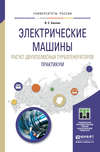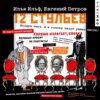Read the book: «The Intermediate Sex»
“There are transitional forms between the metals and non-metals; between chemical combinations and simple mixtures, between animals and plants, between phanerogams and cryptogams, and between mammals and birds.… The improbability may henceforth be taken for granted of finding in Nature a sharp cleavage between all that is masculine on the one side and all that is feminine on the other; or that any living being is so simple in this respect that it can be put wholly on one side, or wholly on the other, of the line.”
O. Weininger.
PREFATORY NOTE TO FIRST EDITION
The following papers, now collected in book-form, have been written—and some of them published—on various occasions during the last twelve or fourteen years, and in the intervals of other work; and this must be my excuse for occasional repetitions or overlapping of matter, which may be observable among them. I have thought it best, however, to leave them as they stand, as in this way each is more complete in itself. The second essay, which gives its title to the book, has already appeared in my “Love’s Coming-of-Age” (edition 1906), but is reprinted here as belonging more properly to this volume.
A collection of quotations from responsible writers, who touch on various sides of the subject, is added at the end, to form an Appendix—which the author thinks will prove helpful, though he does not necessarily endorse all the opinions presented.
E. C.
Introductory
The subject dealt with in this book is one of great, and one may say growing, importance. Whether it is that the present period is one of large increase in the numbers of men and women of an intermediate or mixed temperament, or whether it merely is that it is a period in which more than usual attention happens to be accorded to them, the fact certainly remains that the subject has great actuality and is pressing upon us from all sides. It is recognised that anyhow the number of persons occupying an intermediate position between the two sexes is very great, that they play a considerable part in general society, and that they necessarily present and embody many problems which, both for their own sakes and that of society, demand solution. The literature of the question has in consequence already grown to be very extensive, especially on the Continent, and includes a great quantity of scientific works, medical treatises, literary essays, romances, historical novels, poetry, etc. And it is now generally admitted that some knowledge and enlightened understanding of the subject is greatly needed for the use of certain classes—as, for instance, medical men, teachers, parents, magistrates, judges, and the like.
That there are distinctions and gradations of Soul-material in relation to Sex—that the inner psychical affections and affinities shade off and graduate, in a vast number of instances, most subtly from male to female, and not always in obvious correspondence with the outer bodily sex—is a thing evident enough to anyone who considers the subject; nor could any good purpose well be served by ignoring this fact—even if it were possible to do so. It is easy of course (as some do) to classify all these mixed or intermediate types as bad. It is also easy (as some do) to argue that just because they combine opposite qualities they are likely to be good and valuable. But the subtleties and complexities of Nature cannot be despatched in this off-hand manner. The great probability is that, as in any other class of human beings, there will be among these too, good and bad, high and low, worthy and unworthy—some perhaps exhibiting through their double temperament a rare and beautiful flower of humanity, others a perverse and tangled ruin.
Before the facts of Nature we have to preserve a certain humility and reverence; nor rush in with our preconceived and obstinate assumptions. Though these gradations of human type have always, and among all peoples, been more or less known and recognised, yet their frequency to-day, or even the concentration of attention on them, may be the indication of some important change actually in progress. We do not know, in fact, what possible evolutions are to come, or what new forms, of permanent place and value, are being already slowly differentiated from the surrounding mass of humanity. It may be that, as at some past period of evolution the worker-bee was without doubt differentiated from the two ordinary bee-sexes, so at the present time certain new types of human kind may be emerging, which will have an important part to play in the societies of the future—even though for the moment their appearance is attended by a good deal of confusion and misapprehension. It may be so; or it may not. We do not know; and the best attitude we can adopt is one of sincere and dispassionate observation of facts.
Of course wherever this subject touches on the domain of love we may expect difficult queries to arise. Yet it is here probably that the noblest work of the intermediate sex or sexes will be accomplished, as well as the greatest errors committed. It seems almost a law of Nature that new and important movements should be misunderstood and vilified—even though afterwards they may be widely approved or admitted to honour. Such movements are always envisaged first from whatever aspect they may possibly present, of ludicrous or contemptible. The early Christians, in the eyes of Romans, were chiefly known as the perpetrators of obscure rites and crimes in the darkness of the catacombs. Modern Socialism was for a long time supposed to be an affair of daggers and dynamite; and even now there are thousands of good people ignorant enough to believe that it simply means “divide up all round, and each take his threepenny bit.” Vegetarians were supposed to be a feeble and brainless set of cabbage-eaters. The Women’s movement, so vast in its scope and importance, was nothing but an absurd attempt to make women “the apes of men.” And so on without end; the accusation in each case being some tag or last fag-end of fact, caught up by ignorance, and coloured by prejudice. So commonplace is it to misunderstand, so easy to misrepresent.
That the Uranian temperament, especially in regard to its affectional side, is not without faults must naturally be allowed; but that it has been grossly and absurdly misunderstood is certain. With a good deal of experience in the matter, I think one may safely say that the defect of the male Uranian, or Urning,1 is not sensuality—but rather sentimentality. The lower, more ordinary types of Urning are often terribly sentimental; the superior types strangely, almost incredibly emotional; but neither as a rule (though of course there must be exceptions) are so sensual as the average normal man.
This immense capacity of emotional love represents of course a great driving force. Whether in the individual or in society, love is eminently creative. It is their great genius for attachment which gives to the best Uranian types their penetrating influence and activity, and which often makes them beloved and accepted far and wide even by those who know nothing of their inner mind. How many so-called philanthropists of the best kind (we need not mention names) have been inspired by the Uranian temperament, the world will probably never know. And in all walks of life the great number and influence of folk of this disposition, and the distinguished place they already occupy, is only realised by those who are more or less behind the scenes. It is probable also that it is this genius for emotional love which gives to the Uranians their remarkable youthfulness.
Anyhow, with their extraordinary gift for, and experience in, affairs of the heart—from the double point of view, both of the man and of the woman—it is not difficult to see that these people have a special work to do as reconcilers and interpreters of the two sexes to each other. Of this I have spoken at more length below (chaps. ii. and v.). It is probable that the superior Urnings will become, in affairs of the heart, to a large extent the teachers of future society; and if so that their influence will tend to the realisation and expression of an attachment less exclusively sensual than the average of to-day, and to the diffusion of this in all directions.
While at any rate not presuming to speak with authority on so difficult a subject, I plead for the necessity of a patient consideration of it, for the due recognition of the types of character concerned, and for some endeavour to give them their fitting place and sphere of usefulness in the general scheme of society.
One thing more by way of introductory explanation. The word Love is commonly used in so general and almost indiscriminate a fashion as to denote sometimes physical instincts and acts, and sometimes the most intimate and profound feelings; and in this way a good deal of misunderstanding is caused. In this book (unless there be exceptions in the Appendix) the word is used to denote the inner devotion of one person to another; and when anything else is meant—as, for instance, sexual relations and actions—this is clearly stated and expressed.
II
The Intermediate Sex
“Urning men and women, on whose book of life Nature has written her new word which sounds so strange to us, bear such storm and stress within them, such ferment and fluctuation, so much complex material having its outlet only towards the future; their individualities are so rich and many-sided, and withal so little understood, that it is impossible to characterise them adequately in a few sentences.”—Otto de Joux.
In late years (and since the arrival of the New Woman amongst us) many things in the relation of men and women to each other have altered, or at any rate become clearer. The growing sense of equality in habits and customs—university studies, art, music, politics, the bicycle, etc.—all these things have brought about a rapprochement between the sexes. If the modern woman is a little more masculine in some ways than her predecessor, the modern man (it is to be hoped), while by no means effeminate, is a little more sensitive in temperament and artistic in feeling than the original John Bull. It is beginning to be recognised that the sexes do not or should not normally form two groups hopelessly isolated in habit and feeling from each other, but that they rather represent the two poles of one group—which is the human race; so that while certainly the extreme specimens at either pole are vastly divergent, there are great numbers in the middle region who (though differing corporeally as men and women) are by emotion and temperament very near to each other.2 We all know women with a strong dash of the masculine temperament, and we all know men whose almost feminine sensibility and intuition seem to belie their bodily form. Nature, it might appear, in mixing the elements which go to compose each individual, does not always keep her two groups of ingredients—which represent the two sexes—properly apart, but often throws them crosswise in a somewhat baffling manner, now this way and now that; yet wisely, we must think—for if a severe distinction of elements were always maintained the two sexes would soon drift into far latitudes and absolutely cease to understand each other. As it is, there are some remarkable and (we think) indispensable types of character in whom there is such a union or balance of the feminine and masculine qualities that these people become to a great extent the interpreters of men and women to each other.
There is another point which has become clearer of late. For as people are beginning to see that the sexes form in a certain sense a continuous group, so they are beginning to see that Love and Friendship—which have been so often set apart from each other as things distinct—are in reality closely related and shade imperceptibly into each other. Women are beginning to demand that Marriage shall mean Friendship as well as Passion; that a comrade-like Equality shall be included in the word Love; and it is recognised that from the one extreme of a ‘Platonic’ friendship (generally between persons of the same sex) up to the other extreme of passionate love (generally between persons of opposite sex) no hard and fast line can at any point be drawn effectively separating the different kinds of attachment. We know, in fact, of Friendships so romantic in sentiment that they verge into love; we know of Loves so intellectual and spiritual that they hardly dwell in the sphere of Passion.
A moment’s thought will show that the general conceptions indicated above—if anywhere near the truth—point to an immense diversity of human temperament and character in matters relating to sex and love; but though such diversity has probably always existed, it has only in comparatively recent times become a subject of study.
More than thirty years ago, however, an Austrian writer, K. H. Ulrichs, drew attention in a series of pamphlets (Memnon, Ara Spei, Inclusa, etc.) to the existence of a class of people who strongly illustrate the above remarks, and with whom specially this paper is concerned. He pointed out that there were people born in such a position—as it were on the dividing line between the sexes—that while belonging distinctly to one sex as far as their bodies are concerned they may be said to belong mentally and emotionally to the other; that there were men, for instance, who might be described as of feminine soul enclosed in a male body (anima muliebris in corpore virili inclusa), or in other cases, women whose definition would be just the reverse. And he maintained that this doubleness of nature was to a great extent proved by the special direction of their love-sentiment. For in such cases, as indeed might be expected, the (apparently) masculine person instead of forming a love-union with a female tended to contract romantic friendships with one of his own sex; while the apparently feminine would, instead of marrying in the usual way, devote herself to the love of another feminine.
People of this kind (i.e., having this special variation of the love-sentiment) he called Urnings;3 and though we are not obliged to accept his theory about the crosswise connexion between ‘soul’ and ‘body,’ since at best these words are somewhat vague and indefinite; yet his work was important because it was one of the first attempts, in modern times, to recognise the existence of what might be called an Intermediate sex, and to give at any rate some explanation of it.4
Since that time the subject has been widely studied and written about by scientific men and others, especially on the Continent (though in England it is still comparatively unknown), and by means of an extended observation of present-day cases, as well as the indirect testimony of the history and literature of past times, quite a body of general conclusions has been arrived at—of which I propose in the following pages to give some slight account.
Contrary to the general impression, one of the first points that emerges from this study is that ‘Urnings,’ or Uranians, are by no means so very rare; but that they form, beneath the surface of society, a large class. It remains difficult, however, to get an exact statement of their numbers; and this for more than one reason: partly because, owing to the want of any general understanding of their case, these folk tend to conceal their true feelings from all but their own kind, and indeed often deliberately act in such a manner as to lead the world astray—(whence it arises that a normal man living in a certain society will often refuse to believe that there is a single Urning in the circle of his acquaintance, while one of the latter, or one that understands the nature, living in the same society, can count perhaps a score or more)—and partly because it is indubitable that the numbers do vary very greatly, not only in different countries but even in different classes in the same country. The consequence of all this being that we have estimates differing very widely from each other. Dr. Grabowsky, a well-known writer in Germany, quotes figures (which we think must be exaggerated) as high as one man in every 22, while Dr. Albert Moll (Die Conträre Sexualempfindung, chap. 3) gives estimates varying from 1 in every 50 to as low as 1 in every 500.5 These figures apply to such as are exclusively of the said nature, i.e., to those whose deepest feelings of love and friendship go out only to persons of their own sex. Of course, if in addition are included those double-natured people (of whom there is a great number) who experience the normal attachment, with the homogenic tendency in less or greater degree superadded, the estimates must be greatly higher.
In the second place it emerges (also contrary to the general impression) that men and women of the exclusively Uranian type are by no means necessarily morbid in any way—unless, indeed, their peculiar temperament be pronounced in itself morbid. Formerly it was assumed as a matter of course, that the type was merely a result of disease and degeneration; but now with the examination of the actual facts it appears that, on the contrary, many are fine, healthy specimens of their sex, muscular and well-developed in body, of powerful brain, high standard of conduct, and with nothing abnormal or morbid of any kind observable in their physical structure or constitution. This is of course not true of all, and there still remain a certain number of cases of weakly type to support the neuropathic view. Yet it is very noticeable that this view is much less insisted on by the later writers than by the earlier. It is also worth noticing that it is now acknowledged that even in the most healthy cases the special affectional temperament of the ‘Intermediate’ is, as a rule, ineradicable; so much so that when (as in not a few instances) such men and women, from social or other considerations, have forced themselves to marry and even have children, they have still not been able to overcome their own bias, or the leaning after all of their life-attachment to some friend of their own sex.
This subject, though obviously one of considerable interest and importance, has been hitherto, as I have pointed out, but little discussed in this country, partly owing to a certain amount of doubt and distrust which has, not unnaturally perhaps, surrounded it. And certainly if the men and women born with the tendency in question were only exceedingly rare, though it would not be fair on that account to ignore them, yet it would hardly be necessary to dwell at great length on their case. But as the class is really, on any computation, numerous, it becomes a duty for society not only to understand them but to help them to understand themselves.
For there is no doubt that in many cases people of this kind suffer a great deal from their own temperament—and yet, after all, it is possible that they may have an important part to play in the evolution of the race. Anyone who realises what Love is, the dedication of the heart, so profound, so absorbing, so mysterious, so imperative, and always just in the noblest natures so strong, cannot fail to see how difficult, how tragic even, must often be the fate of those whose deepest feelings are destined from the earliest days to be a riddle and a stumbling-block, unexplained to themselves, passed over in silence by others.6 To call people of such temperament ‘morbid,’ and so forth, is of no use. Such a term is, in fact, absurdly inapplicable to many, who are among the most active, the most amiable and accepted members of society; besides, it forms no solution of the problem in question, and only amounts to marking down for disparagement a fellow-creature who has already considerable difficulties to contend with. Says Dr. Moll, “Anyone who has seen many Urnings will probably admit that they form a by no means enervated human group; on the contrary, one finds powerful, healthy-looking folk among them;” but in the very next sentence he says that they “suffer severely” from the way they are regarded; and in the manifesto of a considerable community of such people in Germany occur these words, “The rays of sunshine in the night of our existence are so rare, that we are responsive and deeply grateful for the least movement, for every single voice that speaks in our favour in the forum of mankind.”7
In dealing with this class of folk, then, while I do not deny that they present a difficult problem, I think that just for that very reason their case needs discussion. It would be a great mistake to suppose that their attachments are necessarily sexual, or connected with sexual acts. On the contrary (as abundant evidence shows), they are often purely emotional in their character; and to confuse Uranians (as is so often done) with libertines having no law but curiosity in self-indulgence is to do them a great wrong. At the same time, it is evident that their special temperament may sometimes cause them difficulty in regard to their sexual relations. Into this subject we need not just now enter. But we may point out how hard it is, especially for the young among them, that a veil of complete silence should be drawn over the subject, leading to the most painful misunderstandings, and perversions and confusions of mind; and that there should be no hint of guidance; nor any recognition of the solitary and really serious inner struggles they may have to face! If the problem is a difficult one—as it undoubtedly is—the fate of those people is already hard who have to meet it in their own persons, without their suffering in addition from the refusal of society to give them any help. It is partly for these reasons, and to throw a little light where it may be needed, that I have thought it might be advisable in this paper simply to give a few general characteristics of the Intermediate types.
As indicated then already, in bodily structure there is, as a rule, nothing to distinguish the subjects of our discussion from ordinary men and women; but if we take the general mental characteristics it appears from almost universal testimony that the male tends to be of a rather gentle, emotional disposition—with defects, if such exist, in the direction of subtlety, evasiveness, timidity, vanity, etc.; while the female is just the opposite, fiery, active, bold and truthful, with defects running to brusqueness and coarseness. Moreover, the mind of the former is generally intuitive and instinctive in its perceptions, with more or less of artistic feeling; while the mind of the latter is more logical, scientific, and precise than usual with the normal woman. So marked indeed are these general characteristics that sometimes by means of them (though not an infallible guide) the nature of the boy or girl can be detected in childhood, before full development has taken place; and needless to say it may often be very important to be able to do this.
It was no doubt in consequence of the observation of these signs that K. H. Ulrichs proposed his theory; and though the theory, as we have said, does not by any means meet all the facts, still it is perhaps not without merit, and may be worth bearing in mind.
In the case, for instance, of a woman of this temperament (defined we suppose as “a male soul in a female body”) the theory helps us to understand how it might be possible for her to fall bonâ fide in love with another woman. Krafft-Ebing gives8 the case of a lady (A.), 28 years of age, who fell deeply in love with a younger one (B.). “I loved her divinely,” she said. They lived together, and the union lasted four years, but was then broken by the marriage of B. A. suffered in consequence from frightful depression; but in the end—though without real love—got married herself. Her depression however only increased and deepened into illness. The doctors, when consulted, said that all would be well if she could only have a child. The husband, who loved his wife sincerely, could not understand her enigmatic behaviour. She was friendly to him, suffered his caresses, but for days afterwards remained “dull, exhausted, plagued with irritation of the spine, and nervous.” Presently a journey of the married pair led to another meeting with the female friend—who had now been wedded (but also unhappily) for three years.
“Both ladies trembled with joy and excitement as they fell into each other’s arms, and were thenceforth inseparable. The man found that this friendship relation was a singular one, and hastened the departure. When the opportunity occurred, he convinced himself from the correspondence between his wife and her ‘friend’ that their letters were exactly like those of two lovers.”
It appears that the loves of such women are often very intense, and (as also in the case of male Urnings) life-long.9 Both classes feel themselves blessed when they love happily. Nevertheless, to many of them it is a painful fact that—in consequence of their peculiar temperament—they are, though fond of children, not in the position to found a family.
We have so far limited ourselves to some very general characteristics of the Intermediate race. It may help to clear and fix our ideas if we now describe more in detail, first, what may be called the extreme and exaggerated types of the race, and then the more normal and perfect types. By doing so we shall get a more definite and concrete view of our subject.
In the first place, then, the extreme specimens—as in most cases of extremes—are not particularly attractive, sometimes quite the reverse. In the male of this kind we have a distinctly effeminate type, sentimental, lackadaisical, mincing in gait and manners, something of a chatterbox, skilful at the needle and in woman’s work, sometimes taking pleasure in dressing in woman’s clothes; his figure not unfrequently betraying a tendency towards the feminine, large at the hips, supple, not muscular, the face wanting in hair, the voice inclining to be high-pitched, etc.; while his dwelling-room is orderly in the extreme, even natty, and choice of decoration and perfume. His affection, too, is often feminine in character, clinging, dependent and jealous, as of one desiring to be loved almost more than to love.10
On the other hand, as the extreme type of the homogenic female, we have a rather markedly aggressive person, of strong passions, masculine manners and movements, practical in the conduct of life, sensuous rather than sentimental in love, often untidy, and outré in attire;11 her figure muscular, her voice rather low in pitch; her dwelling-room decorated with sporting-scenes, pistols, etc., and not without a suspicion of the fragrant weed in the atmosphere; while her love (generally to rather soft and feminine specimens of her own sex) is often a sort of furor, similar to the ordinary masculine love, and at times almost uncontrollable.
These are types which, on account of their salience, everyone will recognise more or less. Naturally, when they occur they excite a good deal of attention, and it is not an uncommon impression that most persons of the homogenic nature belong to either one or other of these classes. But in reality, of course, these extreme developments are rare, and for the most part the temperament in question is embodied in men and women of quite normal and unsensational exterior. Speaking of this subject and the connection between effeminateness and the homogenic nature in men, Dr. Moll says: “It is, however, as well to point out at the outset that effeminacy does not by any means show itself in all Urnings. Though one may find this or that indication in a great number of cases, yet it cannot be denied that a very large percentage, perhaps by far the majority of them, do not exhibit pronounced Effeminacy.” And it may be supposed that we may draw the same conclusion with regard to women of this class—namely, that the majority of them do not exhibit pronounced masculine habits. In fact, while these extreme cases are of the greatest value from a scientific point of view as marking tendencies and limits of development in certain directions, it would be a serious mistake to look upon them as representative cases of the whole phases of human evolution concerned.
If now we come to what may be called the more normal type of the Uranian man, we find a man who, while possessing thoroughly masculine powers of mind and body, combines with them the tenderer and more emotional soul-nature of the woman—and sometimes to a remarkable degree. Such men, as said, are often muscular and well-built, and not distinguishable in exterior structure and the carriage of body from others of their own sex; but emotionally they are extremely complex, tender, sensitive, pitiful and loving, “full of storm and stress, of ferment and fluctuation” of the heart; the logical faculty may or may not, in their case, be well-developed, but intuition is always strong; like women they read characters at a glance, and know, without knowing how, what is passing in the minds of others; for nursing and waiting on the needs of others they have often a peculiar gift; at the bottom lies the artist-nature, with the artist’s sensibility and perception. Such an one is often a dreamer, of brooding, reserved habits, often a musician, or a man of culture, courted in society, which nevertheless does not understand him—though sometimes a child of the people, without any culture, but almost always with a peculiar inborn refinement. De Joux, who speaks on the whole favourably of Uranian men and women, says of the former: “They are enthusiastic for poetry and music, are often eminently skilful in the fine arts, and are overcome with emotion and sympathy at the least sad occurrence. Their sensitiveness, their endless tenderness for children, their love of flowers, their great pity for beggars and crippled folk are truly womanly.” And in another passage he indicates the artist-nature, when he says: “The nerve-system of many an Urning is the finest and the most complicated musical instrument in the service of the interior personality that can be imagined.”




















